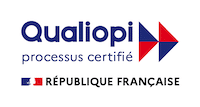Today, this lever is no longer sufficient to motivate sales staff: recruitment difficulties, high staff turnover... from now on, you need other arguments to ensure that your sales teams give their best and invest in the long term! The meaning given to their work, the possibility of taking initiatives and the opportunity to take part in a collective adventure, are today some of the elements that count in the eyes of salespeople.
Motivation isn't activated by pressing a button!
The question of sales reps' commitment calls for a pre-requisite tinged with humility:
"You can't motivate someone: you can simply create the right conditions for them to activate their own engines".
This may seem obvious, but it puts the lie to some of the rhetoric around "turnkey" solutions for generating commitment within sales teams (from mobile apps to team-building activities and incentives of all kinds).
Let's be clear, while these solutions can have a real ripple effect and stimulate sales team involvement in the short term, the notion of engagement appeals to the deeper drivers of individuals, and these drivers have evolved in recent years.
Meaning" and values increasingly important, especially among "young people
Overall, we're seeing a shift in employees' priorities, including in the commercial sector: less focused on money as an end in itself, or on attributes of power, employees today attach increasing importance to the meaning of their work and the values conveyed by the company they work for, or plan to join.
This is particularly true of the younger generation entering today's job market, as highlighted by the latest Universum1 study, which shows a growing attachment on the part of students to criteria linked to CSR, ethics and equality in their career choices:
"1 in 3 students think that ethics is an important subject (especially on the Business side), and 26% attach importance to the ethical principles of companies."
Another example is the success of the Manifeste étudiant pour un réveil écologique (Student Manifesto for an Ecological Awakening), launched by students from leading business schools including HEC, in which they declare their willingness to boycott companies that do not make a commitment to ecology, even if it means earning less.
Money can't buy happiness... or commitment, anyway!
While this prevalence of values and ethics in career choices needs to be nuanced (the same study shows that, beyond the rhetoric, business school students still mostly choose for their first position companies that offer high income prospects and constitute a good reference for their CVs...), it is important to bear in mind that financial criteria are no longer the only ones to count, and that the driving forces behind salespeople have become multiple.
Beyond ethics, several criteria have become essential in the career choices of sales people, including: having an immediate impact on the company, experiencing collective "professional challenges", and being autonomous in their work.
So how do you integrate these changing sales aspirations into your management style?
The new levers of sales engagement
Here are several areas you can work on to encourage the commitment of your sales teams and develop your company's appeal:
- Work on the company's values and raison d'être: The feeling of being useful is a determining factor in the notion of commitment! And there's nothing better than defining your company's mission, giving meaning to its actions and highlighting its positive impact on society. This is what Simon Sinek calls the "Golden Circle", and corresponds to the "WHY?" in his crystal-clear diagram describing what makes one company so much more attractive and commercially successful than another.
- Encourage autonomy and initiative: Encouraging initiative means allowing your sales reps to participate in the decisions that concern them, and to be involved in the organization of their day-to-day work (for example, by asking them to define the means to be used to achieve their objectives). This also means letting them experiment (with a new pitch, a new e-mail sequence, the operation of a new CRM tool...) within a defined framework (objectives, time...) by trusting them and giving them the right to make mistakes.
- Develop "Coopetition" and the sharing of best practices: In a constantly evolving environment, the playing field is constantly changing, and the best of one moment is not necessarily the best of the next! Encouraging the sharing of best practices internally is a good way of rewarding top performers, while ensuring that not everything rests on their shoulders. To do this, you can encourage the setting up of times when a member of the sales team will train his colleagues in a tool, technique or approach that he applies with better results than the others. In this way, the team will benefit from both emulation and collaboration, and everyone will have the opportunity to make the most of their strengths.
A change of posture for managers
If these levers are based on values and give pride of place to collaborative logics, their activation is not necessarily a matter of idealism, nor is it "free" for companies: not only is it a factor in team commitment and stability, but the implementation of these levers is conducive to agility and innovation, and therefore ultimately to the sustainability and performance of your company.
However, it implies a real change of attitude, which may prove counter-intuitive for many managers: the "inherited" management styles of recent decades were largely based on a "command and control" logic.
Today, it's all about placing more value on "doing better" than "doing good", even if it sometimes takes longer to get started.
By shifting the role of employees from the execution of systems designed upstream and often applied in a "top-down" fashion, to that of reflection and initiative-taking, we are bringing about a major change in the role of managers. Their mission is now to build a secure and stimulating framework, to create trust and to encourage skills development.
Much more in a "coaching" and support mode, they question and listen to their teams, without necessarily wanting to know everything, to help them find the best solutions on their own.
From now on, the competence of sales managers is no longer measured by the quality of their answers, but by the quality of their questions!
This approach is less obvious to activate than financial leverage alone, but it also gives meaning and value to the mission of sales managers themselves!
Are you facing a crisis situation? Have you considered repositioning your sales activities? Watch this webinar to find out how:
- Universum 2019 annual survey on "The major career trends of Business and Engineering School students". A summary of the results can be viewed via this link: http: //www.datapressepremium.com/rmdiff/2010661/Communique_presse_V4_09042019.pdf






